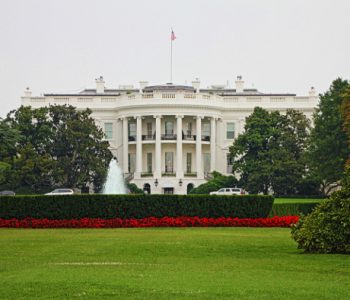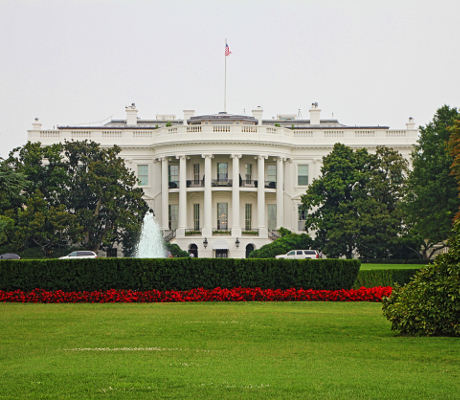New Tax Loophole Could Pay Out Yields Up to 27%

Earn 12%+ Yields From Trump’s Tax Plan
Did you catch this report? A few weeks ago, the White House published the broad outline of its tax plan. The memo highlighted its main goals, including job creation, simplifying the tax code, and help for small businesses.
The media exploited the report to launch another round of attacks on President Donald Trump. The outline, however, revealed a new loophole to put $2.6 trillion into investors’ pockets. And the specifics, buried in the fine print, show how ordinary Americans can get their share.
“[The plan] will replace the existing, outdated worldwide tax system with a 100% exemption for dividends from foreign subsidiaries,” the report explains. “To transition to this new system, the framework treats foreign earnings that have accumulated overseas under the old system as repatriated. Accumulated foreign earnings held in illiquid assets will be subject to a lower tax rate than foreign earnings held in cash or cash equivalents.” Simple, right? (Source: “Unified Framework For Fixing Our Broken Tax Code,” Committee on Ways and Means, September 27, 2017.)
Needless to say, this story got little airtime on CNN. And to be fair, getting into the weeds of tax policy would lose eyeballs. But, for investors well versed in IRS jargon, this short passage could represent a dividend bonanza.
American corporations could shave billions of dollars off their tax bill, first off. At 35%, U.S. companies pay the highest tax rate in the world. To keep their earnings out of the government’s hands, most businesses stash any profits earned abroad in offshore accounts.
Of course, this strategy also keeps overseas earnings out of the hands of shareholders. Analysts estimate U.S. companies have over $2.6 trillion in cash trapped abroad–funds, it’s worth emphasizing, that can’t be paid out as distributions to investors or invested into new job-creating businesses stateside. (Source: “Companies are holding a $2.6 trillion pile of cash overseas that’s still growing,” CNBC, April 28, 2017.)
The new White House plan could flip this situation on its head. Under Trump’s proposal, businesses could repatriate their overseas funds at a one-time low tax rate. While the exact numbers remain up for debate in Washington, the bill could trigger a flood of cash into the U.S. economy. Good news for America.
As economist Tyler Cowen explained in a recent Bloomberg View column, lower tax rates would encourage companies to ramp up spending. A lighter tax burden would trigger investment in new properties, plants, and equipment. Monies paid out as dividends could fund the next wave of new, innovative businesses. (Source: “Yes, a Corporate Tax Cut Would Increase Investment,” Bloomberg, November 17, 2017.)
A tax holiday would also provide a shot in the arm for the U.S. economy. According to a report by the American Action Forum, allowing businesses to repatriate their overseas cash would create up to 3.5 million jobs. Moreover, any measure could add $440.0 billion to the country’s gross domestic product. (Source: “Ending the Lockout of Overseas Earnings: An Update,” American Action Forum, August 7, 2013.)
Investors, however, would be the biggest winners. Microsoft Corporation (NASDAQ:MSFT) alone has stockpiled $127.9 billion abroad, according to corporate filings. Other cash-heavy corporate giants include Cisco Systems, Inc. (NASDAQ:CSCO), Oracle Corporation (NASDAQ:ORCL), and Amgen, Inc. (NASDAQ:AMGN).
Another big winner? Apple Inc. (NASDAQ:AAPL). The tech giant holds nearly $0.30 in cash abroad for every dollar in market capitalization. If management paid out all of these holdings in a single shot, investors would receive a one-time distribution of up to 27%.
Donald Trump’s Dividend Bonanza
| Company | Foreign Cash | % of Market Cap |
| Apple Inc. | $246.0 Billion | 27.4% |
| Microsoft Corporation | $127.9 Billion | 20.0% |
| Cisco Systems Inc | $67.5 Billion | 37.5% |
| Oracle Corporation | $54.4 Billion | 26.8% |
| Citigroup Inc | $45.2 Billion | 23.7% |
| Amgen, Inc. | $32.6 Billion | 26.4% |
(Source: Various corporate filings.)
If Donald Trump’s tax plan passes, analysts predict a wave of one-time payouts ranging from 12% to even 25%. Alternatively, and perhaps more likely, executives could choose some package of dividend increases, share buybacks, or new investments.
In any case, the next few years could witness the largest dividend boom in U.S. history. Which raises the question: how do we get in on the action?
The list above represents a good place to start your research. We want to look for mature companies with big international operations and lot of cash overseas.
More importantly, you have to identify companies most likely to pass their windfalls on to shareholders. It doesn’t do us much good if businesses simply hoard their profits in a bank vault. We want to see a long history of growing dividends, ample share buybacks, and the occasional special distribution.
If a company can check all of these boxes, shareholders could earn a bonus from Trump’s new tax loophole.











